Thane Engineers Innovate Composting Unit That Is 50% Cheaper & Runs On Solar Power
From a household generating one kilo of wet garbage to a company generating 500 kilos, the user-friendly and low-cost solar-powered machines are for everyone.
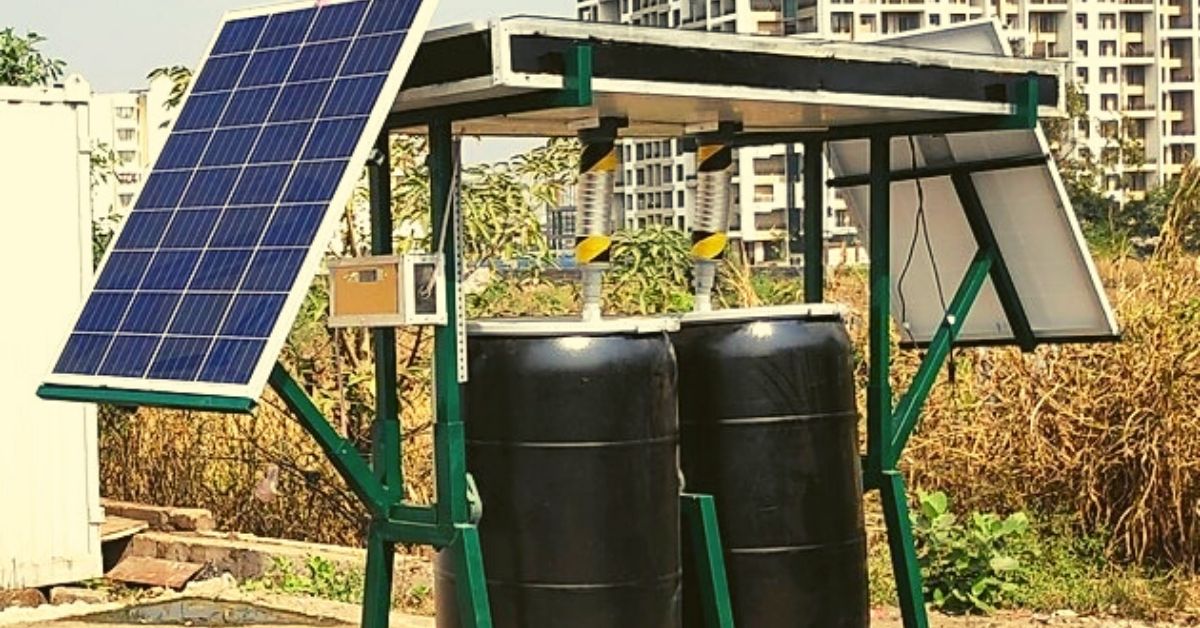
Did you know that composting can prevent up to 60 per cent of your household waste from ending up inside a landfill?
Whether done at the individual household or community level, the process of converting wet garbage into compost can be done in a bin (manually) or a unit that consumes electricity.
However, the issue with an electric compost unit is that it not only increases the electricity bill but also leaves behind massive carbon footprints, which is ironic considering that composting is done to preserve the environment.
To eliminate this problem, Rutvick Pedamkar and Sandip Patil from Maharashtra’s Thane district have designed units that run on solar energy.

“An electric composter needs power for the drying, grinding and cooling process, community composting unit uses around 1200 units per month, and the bill can come up to Rs 10,000. You are burning the environment and your pocket. Which is why we designed units with solar panels that produce electricity from the sun. Only the shredder machine provided with the system will require electricity, which won’t be more than 2 units per day,” Rutvick tells The Better India.
The duo has designed multiple variations of the unit to suit different requirements, and all you need is an area that measures a minimum of 6.6 sq. ft., to install one.
From a household generating one kilo of wet garbage to a company generating 500 kilos, the user-friendly and low-cost machines are for everyone.
Further, the cost of the unit is 50 per cent less than the conventional ones. “Our 50-kilo capacity unit costs one lakh. Whereas another unit with the same capacity costs around four lakhs,” says Rutwick.
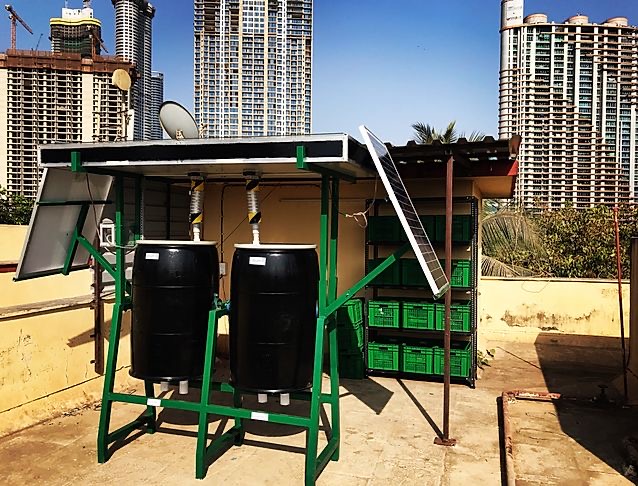
A unit meant for a family costs anywhere between Rs 8,500 to 12,500. For a large unit that can complete community-level composting, the price depends on the capacity. Their biggest unit is priced at Rs 10 lakh that treats up to 500 kilos of wet garbage.
The best part about these units is that if there isn’t enough sunlight in your house, the solar panels can be installed on the terrace. The smallest unit produces up to 200 watts of energy, whereas a 500-kilo system can generate two kilowatts.
Another advantage of the system is that it is maintenance-free. “We have a 50-kilo unit that treats garbage of nearly 40 flats. We have appointed only one person who does the entire process in a hassle-free manner. It is very simple and easy-to-use. We use the freshly made compost in our gardens,” Sushma, a committee member of the Samrudhi Housing Co-operative in Dadar, informs The Better India.
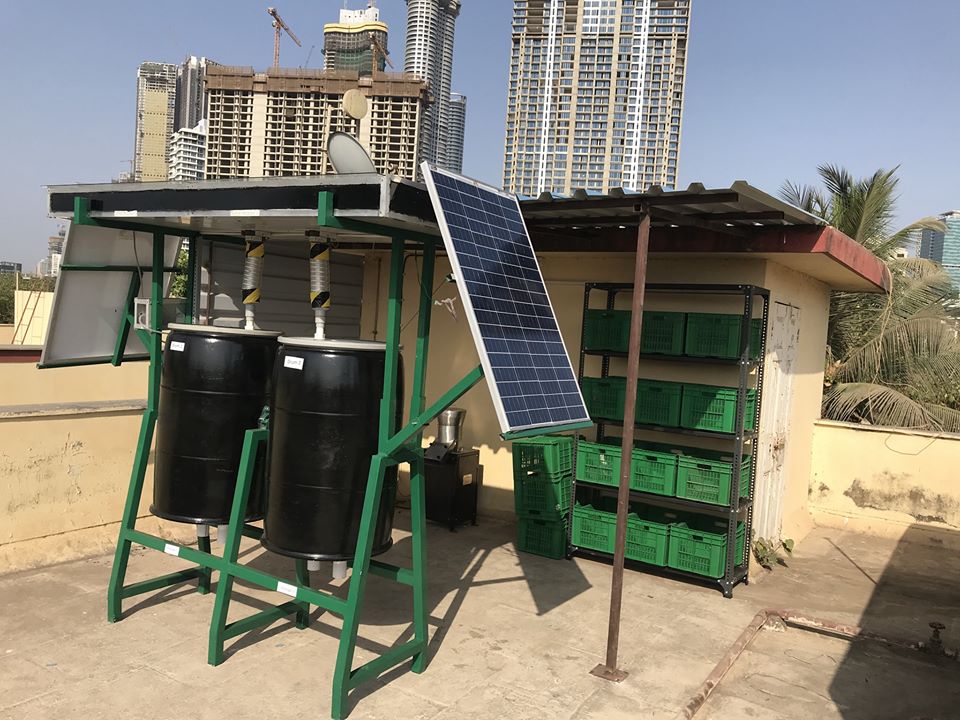
How It All Started
It all started when Rutvick and Sandip, who met during their engineering course at Nagpur University, were on a trip to Ambernath after their graduation.
At the time, Rutvick was doing a sustainability course from Tata Institute of Social Sciences, and Sandip was working at a private firm dealing with waste management solutions.
“We were on our bike when we saw a mountain of garbage that was on fire at a dumping ground. That was the triggering for both of us. Mountains are symbols of beauty, not waste. We decided to put my knowledge on sustainability and his working experience to use and design low-cost composting units,” informs Rutvick.
“The eye-opening incident pushed us to explore ways to treat garbage at source, and finally, we froze on the composting unit since it is more feasible to treat wet garbage than recycle the dry garbage,” adds Sandip.
Researching the Flaws
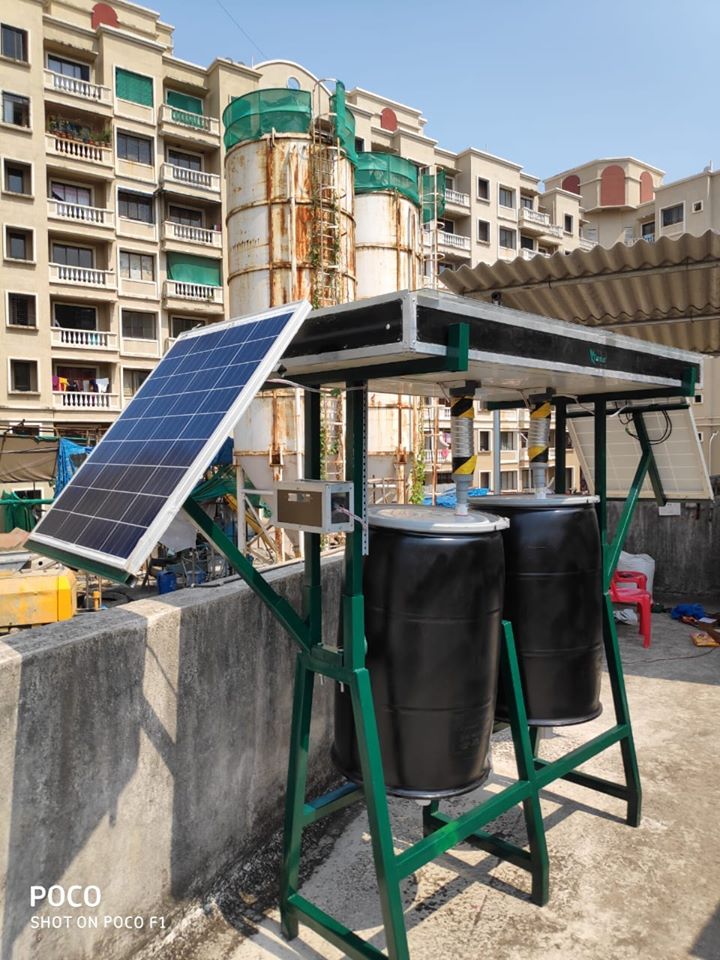
The duo worked hard for almost a year to develop a model that would be different from the conventional machines that are already there in the market. Parallelly, they also carried out surveys in housing societies that had an electric composting unit to understand the requirements and flaws.
“High electricity bills and heavy maintenance were two common issues we found. So, we knew that our alternative had to be greener and cost-effective,” shares Sandip.
They studied research papers and watched innumerable videos. Just when they were hitting a dead end, they came across the technology of solar dryers that could be integrated into a composting unit.
Integrating technology was not an easy task. They went through multiple experiments and testing before cracking the formula. During this period, they faced several sorts of challenges and limitations—including swiftly depleting personal savings.
“We spent around a lakh for the first prototype only to realise that it had a very low capacity to store waste. We even ran out of waste, so we offered neighbouring buildings to treat wet garbage for free in return for their waste,” shares Sandip.
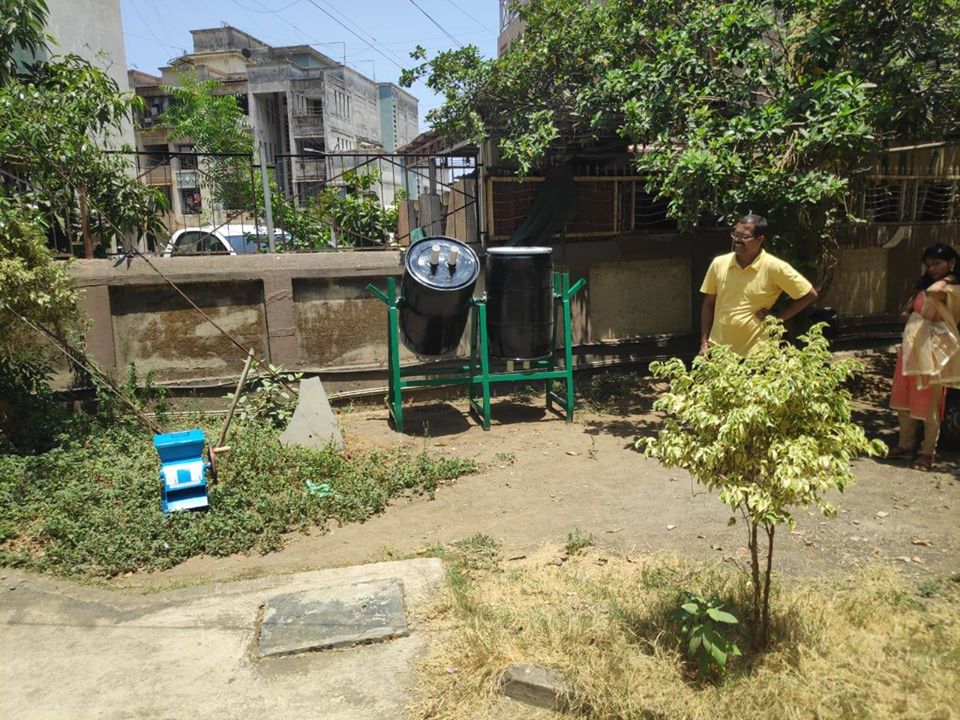
Once their final prototype was ready, it was successfully tested in several buildings in Thane and Mumbai.
In 2017, the duo registered their company ‘Klimrus Sustainable Solution Pvt Ltd’. So far they have sold 70 units to individual households, housing societies, hostels, hotels and companies including Pune-based Mondelez International, which manufactures the beloved Cadbury range of chocolates.
Making Compost in Less Than 10 Days
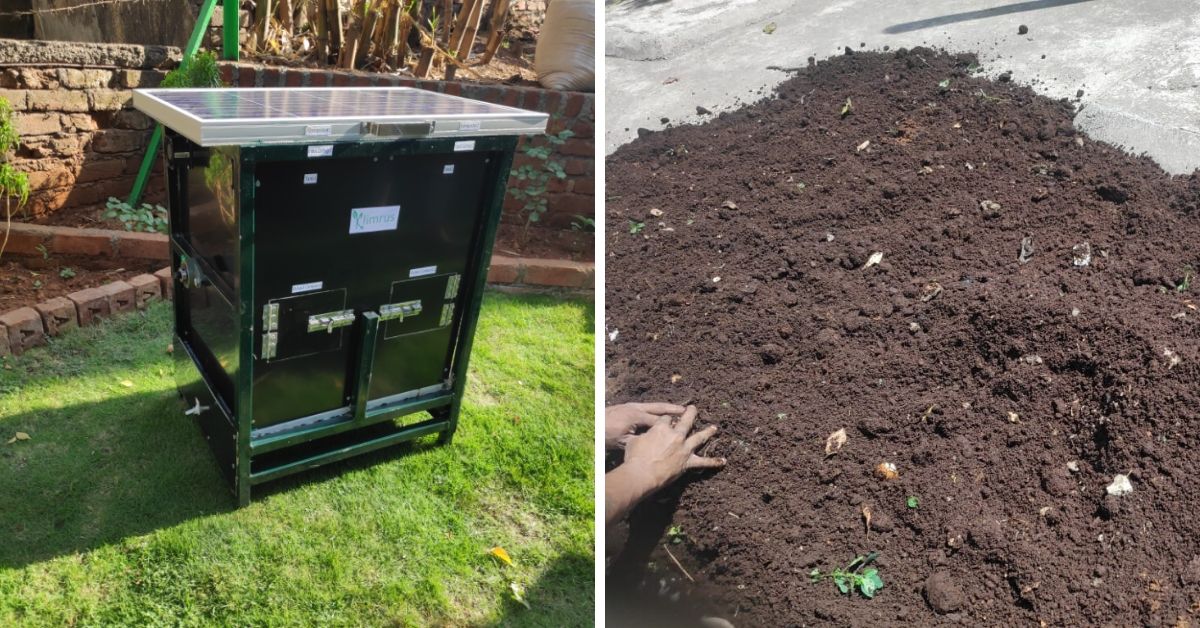
Once contacted, a team from Klimrus Sustainable Solution will install the machine, shredder and solar panels and train you or a housekeeping staff on how to run the unit.
Here’s a 3-step process:
- Deposit the wet garbage, including vegetable waste, peels, eggshells, coffee/tea powder, food waste, and so on in the shredder. It will shred the waste into tiny pieces
- Transfer the pieces to a heated chamber for rotation. Here waste is adequately mixed with browns like dry leaves, cocopeat or sawdust to remove moisture and prevent foul odour. Keep the mix inside the chamber for two days. The mixture is heated to a temperature of 50-60 degree celsius by the use of solar-powered heaters.
- Transfer the newly made compost to a storage rack and keep it for 6-7 days for cooling.
“We have created two compartments inside the unit for a continuous cycle; If one is filled, you can continue the process in the other. The entire solar-run process takes around ten days. In a 100-kilo unit, you will have 30 kilos of nutrient-rich organic compost,” says Rutwick.
In a country like India, which generates 62 million tonnes of waste every year, treating garbage at source is the first step to reduce this massive generation. Composting is an easy way you can start with, and green units developed by Sandip and Rutwick can effectively help curb the waste.
Get in touch with Klimrus Sustainable Solution here.
Also Read: 50% Cheaper & 100% Green: 22-YO Invents Solar Dryer To Help Boost Farmer Incomes
(Edited by Gayatri Mishra)
Like this story? Or have something to share?
Write to us: [email protected]
Connect with us on Facebook and Twitter.
If you found our stories insightful, informative, or even just enjoyable, we invite you to consider making a voluntary payment to support the work we do at The Better India. Your contribution helps us continue producing quality content that educates, inspires, and drives positive change.
Choose one of the payment options below for your contribution-
By paying for the stories you value, you directly contribute to sustaining our efforts focused on making a difference in the world. Together, let’s ensure that impactful stories continue to be told and shared, enriching lives and communities alike.
Thank you for your support. Here are some frequently asked questions you might find helpful to know why you are contributing?


This story made me
-
97
-
121
-
89
-
167











